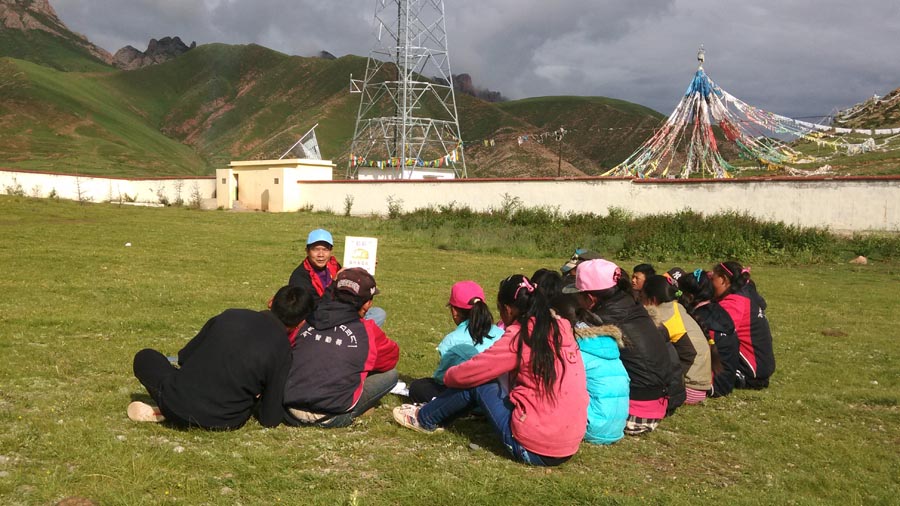 |
|
A volunteer from Foshan hosts a reading event for children in the countryside of Yushu Tibet autonomous prefecture in Qinghai province. [Photo Provided to China Daily] |
"An ideal library is one that residents in the city can be happy with," says Huang Baichuan, chief librarian, Foshan Library.
A poll among 8,566 residents in Foshan showed that in 2019, on average, people read 9.59 paper books and 9.80 digital books. In comparison, the national level over the same period was 4.65 books.
In 2019, there were more than 1.44 million readers registered at the 342 public libraries in Foshan, and more than 42 percent of the registered readers were from outside the city. In 2019, the city's public libraries hosted a total of 5,938 events, involving more than 1.8 million people, according to Foshan Library.
The key to the N-Library program is that the "neighborhood libraries "know more about the needs of their users, so they can provide customized services, Zhang explains.
"Foshan Library used to be a provider of public cultural services, but now it has become a platform where people play their roles as providers of services to each other," she says.
Some families who have taken part in the program often gather together and borrow books from each other. When some parents go to pick up their children from the kindergarten, they carry books in the trunks of their cars for other parents to browse and borrow.
"They all have their strengths, so many of them can do better than public libraries," Zhang says.
Another advantage of the program is that it does not need much investment in building public spaces or human resources, she says.
Every year, Foshan Library assesses the work of the "neighborhood libraries" to see if they are qualified to continue another year. In July, the program won the International Federation of Library Associations PressReader International Marketing Award for 2020.